US President Joe Biden, Empathizer-in-chief After Trump Storm
He was derided as too entrenched in Washington, too hesitant to campaign during Covid-19, and too old, but Joe Biden outmaneuvered doubters to become the 46th US president Wednesday, inheriting a multi-tiered nightmare that will take shrewd political skill to overcome.
With his twice-impeached predecessor Donald Trump leaving in disgrace after his supporters launched a deadly riot at the US Capitol, Biden faces vast immediate challenges.
The heart-on-his-sleeve compassion that he shows for everyday Americans may help soothe a nation in distress.
But instead of easily riding to Americans' rescue he will face the almost unprecedented task of leading the fight against a ferocious pandemic, repairing a wheezing, sinking economy and uniting a deeply divided citizenry.
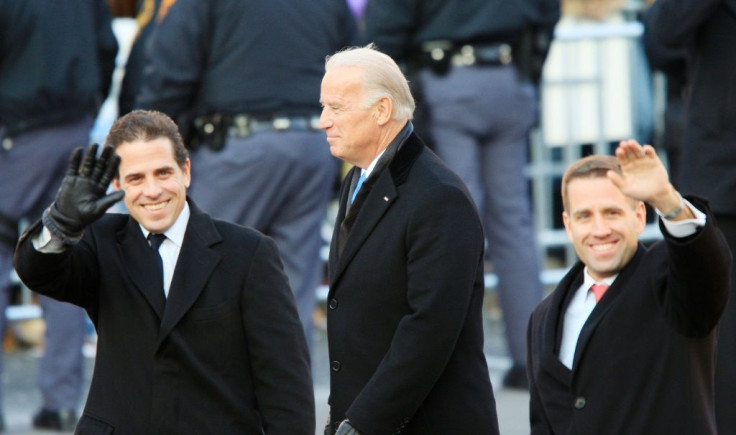
"We must end this uncivil war that pits red against blue, rural versus urban, conservative versus liberal," Biden, 78, said in his inaugural address at the Capitol, on the very platform where rioters clashed with police two weeks ago before they laid siege to Congress.
"We can do this if we open our souls instead of hardening our hearts."
Biden, eight years the vice president to Barack Obama, forged a strong alliance with him that allowed Biden to lay claim to much of Obama's legacy, including the Affordable Care Act that was signed into law in 2010.
In recent months Democrats hoped Biden's November victory would turn the page on Trump's most divisive of presidencies.
Instead it kicked off a 10-week national trauma as Trump and his minions made baseless claims of massive election fraud and pursued a relentless effort to overturn Biden's win, culminating in the unprecedented January 6 attack on the citadel of US democracy.
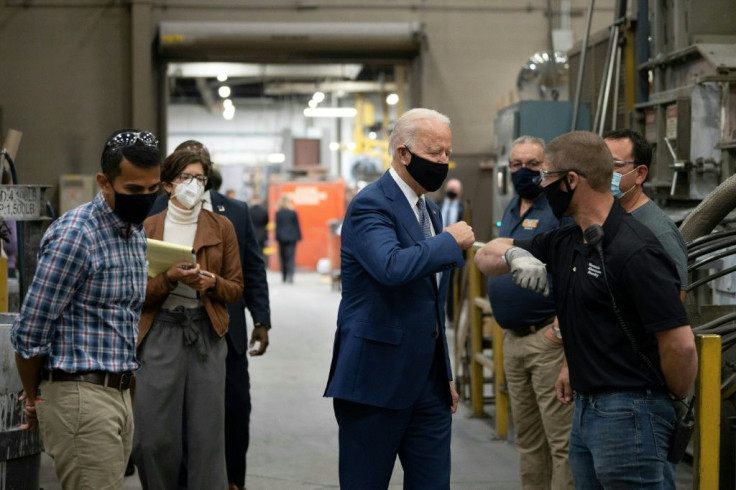
But with the coronavirus pandemic and the resultant economic downturn refusing to pause for a transition of power, the man who has endured unspeakable personal tragedy of his own has been reiterating the message he gave shortly after the election: help is on the way.
"In the work ahead of us, we're going to need each other," Biden stressed Wednesday. "We must set aside politics and finally face this pandemic as one nation."
But can the man who has cast himself as healer-in-chief make headway in a nation where Trump's ideology, regardless of the president's defeat, shows little sign of diminishing?
Rarely have presidential rivals differed so sharply as in the 2020 race, which pitted the empathetic Democrat against the brawling Trump, the billionaire businessman who ran as the outsider despite his four years in the Oval Office.
While Trump has barely lifted a finger to guide post-election pandemic policy, other than to pat himself on the back for speeding the vaccines into being, Biden last week pledged a "new chapter" for the nation.
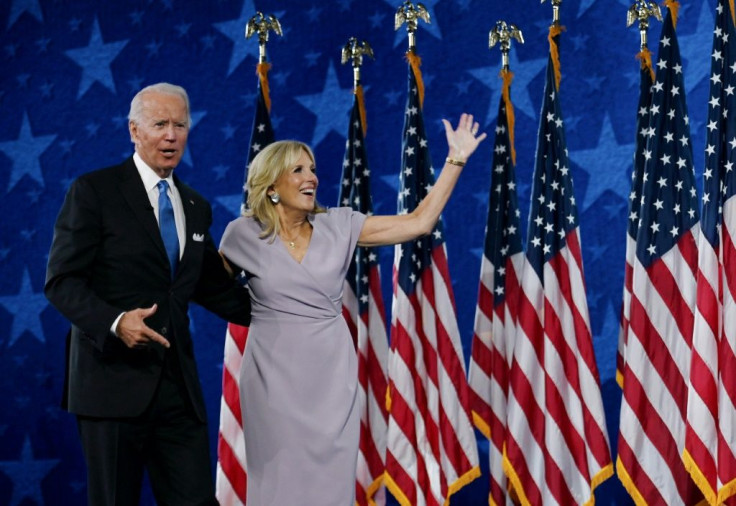
He unveiled a $1.9 trillion rescue plan aimed at revitalizing the world's largest economy and fighting the coronavirus, including administering 100 million vaccine shots in his first 100 days in office.
But his early agenda may well be upended by Trump's impeachment trial, which threatens to take center stage in the Senate during the opening weeks of Biden's presidency.
Biden ran for the White House twice before, in 1987 and 2008.
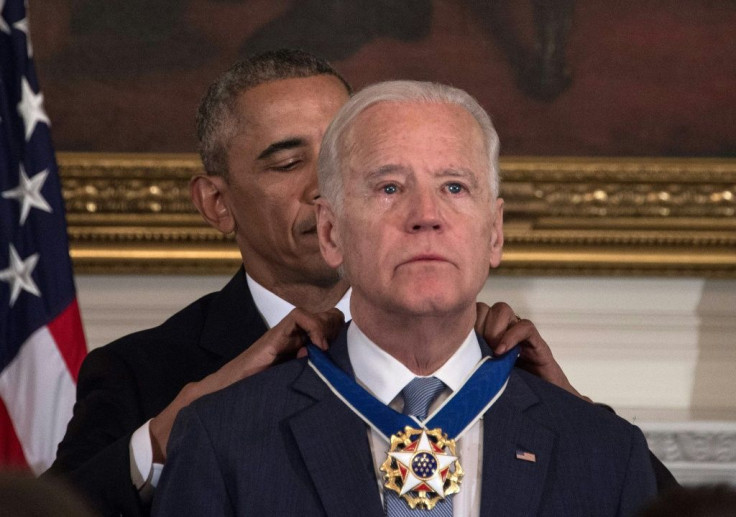
A loss to the deeply polarizing Trump would have drawn a curtain on an ultimately unfulfilled political career.
But "Middle Class Joe" made it his life's crowning mission to unseat the Republican and, in his words, restore America's "soul".
And despite a campaign muted beyond recognition by Covid-19 -- conducted largely from home while his high-octane rival charged around the country -- Biden ultimately showed Trump the door.
By taking the oath of office at age 78, Biden became the oldest US head of state ever inaugurated.
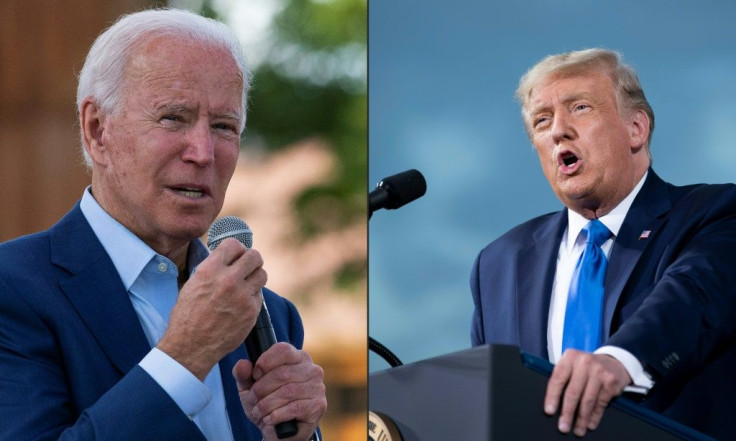
He hit the national stage at just 29, with a surprise US Senate win in Delaware in 1972.
One month later tragedy struck: his wife Neilia and their one-year-old daughter Naomi were killed in a car crash as they were Christmas shopping.
Biden's two sons were severely injured but survived, only for the eldest, Beau, to succumb to cancer in 2015.
Throughout his life, Biden has spoken poignantly of his personal tragedy, seen as having nourished a capacity for genuine empathy -- something Trump failed to demonstrate even as the nationwide death toll from Covid-19 reached hundreds of thousands.
Biden's retail politicking skills are peerless: he can flash his million-watt smile at college students, commiserate with unemployed Rust Belt machinists, or deliver a fiery admonishment of rivals.
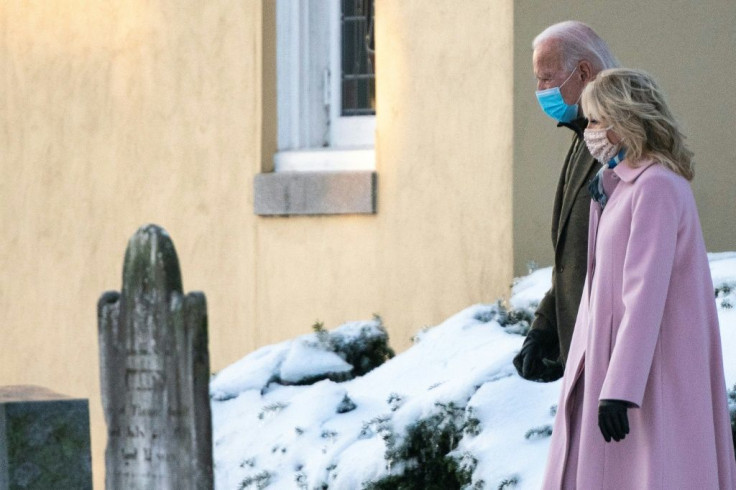
That personable, gregarious quality was curtailed by the pandemic, which brought in-person campaigning to a halt in March and prompted a more cautious Biden on the trail.
Somewhat diminished from the figure he presented during his vice presidency, Biden's dazzling smile remained. But his gait was more delicate and his fine white hair had thinned.
Opponents, and even some Democrats, wondered whether Biden, garrulous and gaffe-prone, would stumble in his long campaign against Trump.
The 74-year-old president nicknamed him "Sleepy Joe" and accused him of diminished mental acuity.
In September, in a flash of frustration with Trump's interruptions during their first debate, he told the president to "shut up."
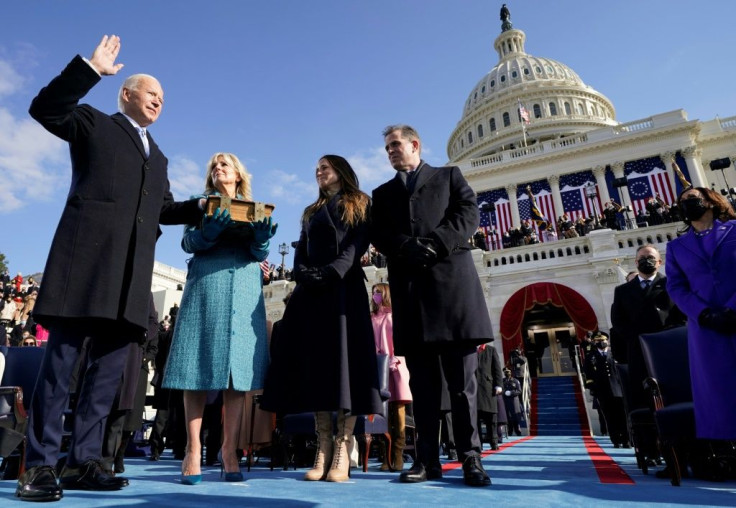
But mostly Biden shrugged off the attacks.
America's oldest president started his Capitol Hill career as one of the youngest senators ever. He would spend more than three decades in the upper chamber.
Biden's campaign message was built largely on his association with the still-popular Obama and on his ability to do business with the many world leaders his former boss sent him to meet.
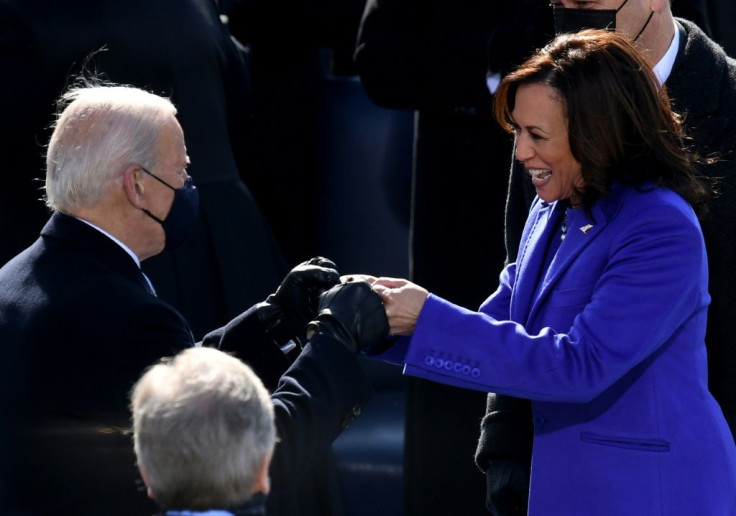
"I know these guys," he would remind people.
His offer of moderate politics in a divisive time was a salve to an electorate exhausted by four years of scandal and chaos in the Trump White House.
But Biden balanced his mainstream appeal with a pledge to take genuinely progressive action as president, on climate change, racial injustice and student debt relief.
As Biden takes office, Americans may already be asking whether the elder statesman will seek to extend his presidency beyond a first term, given his own words on the transitional nature of his candidacy.
"Look, I view myself as a bridge, not as anything else," Biden told a Detroit rally last March.
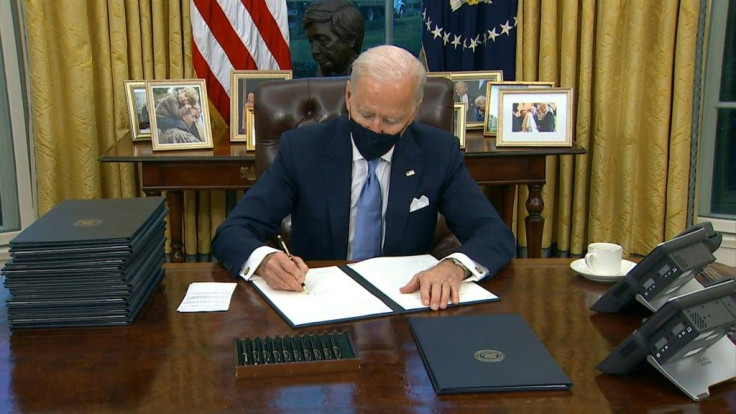
He gestured to younger Democrats who had joined him on stage -- including the senator from California who would become the first woman US vice president, 56-year-old Kamala Harris.
"They are the future of this country," he said."
Despite being the favorite of the Democratic establishment, Biden was anything but assured of becoming his party's flagbearer.
His centrist campaign appeared headed for disaster after disappointing primary losses to the fiery Bernie Sanders early last year.
But Biden came roaring back in South Carolina's primary on the strength of overwhelming backing from African-American voters, a crucial base of Democratic support.
Clinching the nomination marked a sharp contrast to his 1987 flameout, when he quit in disgrace after being caught plagiarizing a speech by British politician Neil Kinnock.
In 2008 he hardly fared better, dropping out after mustering less than one percent of the vote in Iowa's caucuses.
That year he was ultimately picked as running mate by Obama, who dubbed him "America's happy warrior."
As a veteran senator, Biden was known to forge unlikely alliances -- and, like Trump, he developed a lack of fidelity to script.
He faced a reckoning among Democrats, including Harris, for working with known segregationists in the Senate and for opposing 1970s "busing" policies aimed at transporting Black children to predominantly white schools.
He also caught flak for helping draft a 1994 crime bill which many Democrats believe drove up incarcerations, disproportionately affecting Blacks. Biden recently called the push a "mistake."
Other Senate episodes also threatened to spoil his presidential campaign: his 2003 vote for the Iraq war, and his chairmanship of controversial hearings in 1991 in which Anita Hill accused Supreme Court nominee Clarence Thomas of sexual harassment.
Biden relays the heart-wrenching details of his family stories so often that, despite his obvious grief, they have become part of a political brand.
The 1972 accident left his sons Beau, then four, and Hunter, two, badly injured, and the 30-year-old Biden was sworn in beside their hospital beds.
He met his second wife, teacher Jill Jacobs, in 1975 and they married two years later. They have a daughter, Ashley.
Both boys recovered from their injuries and Beau followed his father into politics, becoming attorney general of Delaware. But the Democratic rising star died of brain cancer in 2015 at age 46.
Lawyer and lobbyist Hunter Biden has had a different trajectory.
He received a lucrative salary serving on the board of a Ukrainian gas company accused of corruption while his father was vice president.
Trump's push for Ukraine to investigate the Bidens led to the president's first impeachment, in December 2019, by the Democratically controlled House of Representatives. He was acquitted by the Republican-led Senate.
Hunter was not personally accused of any criminal wrongdoing, but Trump wouldn't let the issue die, repeatedly insisting the Bidens were a "crime family" getting rich off of corruption in Ukraine and China.
But the accusations were of dubious origin and did not stick with voters more concerned about bread-and-butter campaign issues, not to mention a once-in-a-lifetime public health crisis.
Joseph Robinette Biden Jr was born November 20, 1942 and raised in the Rust Belt town of Scranton, Pennsylvania, in an Irish-Catholic family.
His father was a car salesman, but when the city went through tough times in the 1950s and he lost his job, he moved the family to neighboring Delaware when Joe was 10.
"My dad always said, 'Champ, when you get knocked down, you get back up,'" Biden says.
He made Delaware his political domain. As a young man he served as a lifeguard in a majority-Black neighborhood, an experience he said sharpened his awareness of systemic inequalities and strengthened his political interest.
Biden studied at the University of Delaware and the Syracuse University law school, and he has expressed pride that he is not a product of the elite Ivy League.
He touts his working-class roots and recalls being hampered as a child by a stutter so bad he was cruelly nicknamed "Dash."
But he overcame the condition, and on the campaign trail spoke about how he still counsels youngsters who stutter.
Biden would often point to Jill, 69, as a powerful asset for his campaign, and recalled how she took over as mother to her husband's two boys.
"She put us back together," Biden has said.
"It never goes away," Biden said of the pain that lives within him since losing Beau. The tragedy prevented him from launching a presidential bid in 2016.
Even today, he often stops to greet firefighters, recalling that it was they who saved his boys.
They saved Biden too. In 1988 firefighters rushed him to hospital after an aneurysm.
Biden's condition was so dire that a priest was called to give him last rites.
Nearly every Sunday Biden prays at St Joseph on the Brandywine, a Catholic church in his affluent Wilmington neighborhood.
There in the cemetery rest his parents, his first wife and daughter -- and his son Beau, under a tombstone decorated with small American flags.
© Copyright AFP {{Year}}. All rights reserved.





















